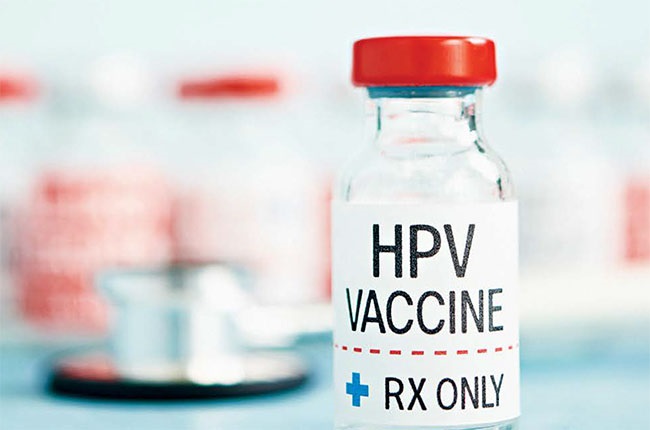
- Cervical cancer is the second most common cancer in South Africa.
- The vaccination is administered to girls before become sexually active.
- Almost 7 in every 10 people will have HPV in their lifetime.
Much is written about HIV/Aids, cancer and other viruses and diseases – rightly so.
But did you know about the Human Papillomavirus (HPV) and that there are more than 200 types of the virus, increasing the risk of most individuals being infected?
Should we be worried? Yes, we should, because HPV infection is one of the most common sexually transmitted infections (STI) and is usually spread through unprotected vaginal, anal or oral sexual contact.
“HPV is sexually transmitted, and it exposes patients to the risk of genital warts, precancerous changes of the vulva and vaginal and cervical cancer,” explains gynaecologist and obstetrician Dr Motlatsi Mokoape.
In fact, HPV is easily spread from sexual skin-to-skin contact with a carrier of the virus, says Whitney Chinogwenya, marketing and brand manager of the Joburg branch of Marie Stopes International.
“These types of HPV can also infect your throat and mouth, alongside your genital area” she adds. General practitioner Dr Tahera Essay says, “HPV can also be the cause of cancers of the throat, including the base of the tongue and tonsils.”
Who is at risk?
Mokoape says all of us are exposed to the virus from the first sexual encounter or even the first few years of sexual activity — especially for those in the 16-24 age group.
Sexually active adults also have a high chance of contracting the virus at some point in their lives, especially if they have multiple sex partners. If you have more than one partner, you may get several strains of HPV and are more likely to develop disease symptoms.
Smoking also increases the risk of HPV, leading to cervical cancer, as it lowers the immune system and makes the body more susceptible to the virus. To this end, a healthy lifestyle is the best way to keep the virus at bay.
“Most people with HPV have no symptoms and feel completely fine. They usually don’t even know they have it,” Chinogwenya explains.
This also means that if tested, HPV could be present but not detectable. The issues arise when the virus persists.
“This is when we have reason to worry about precancerous changes that can lead to cervical cancer,” Mokoape adds.
Immuno-compromised patients, such as those who are HIV positive (and not on any treatment) are at an even higher risk of precancerous changes and cervical cancer. That’s why pregnant women with extensive genital warts are usually not allowed to deliver vaginally due to potential risks to the baby.
READ MORE | Cervical cancer and other diseases most prevalent among Black women, plus how to reduce the risk
How is it treated?
While there is no cure for the virus, there are many measures you can take to keep HPV from having a negative impact on your health. This includes maintaining a healthy sexual lifestyle.
Certain symptoms, like genital warts, can be treated by a doctor or nurse. With high-risk HPV, urgent treatment is required before it turns cancerous.
“This is why regular pap smears and HPV tests are so vital,” Chinogwenya advises. While condoms and dental dams don’t offer perfect protection, they can help lower your chances of contracting the virus.
You have HPV, now what?
Rest assured, most genital HPV infections aren’t harmful at all and are likely to silently disappear. But, regular medical check-ups are an absolute necessity to avoid genital warts and certain types of cancer.
Genital warts are considered low-risk HPV, because they don’t lead to cancer or other serious health hazards. Genital warts can occur in men and women, which is why many medical professionals and experts highly recommend the HPV vaccines, alongside regular medical checkups.
“There are vaccines that are helpful in protecting you from ever getting certain types of HPV,” Chinogwenya says.
Is it necessary to vaccinate? The general consensus is yes.
Did you know that the HPV vaccine prevents more than 80 percent of cervical cancers? South Africa’s national guidelines from 2014 recommend vaccination of girls and women between the ages of 9-26, which complies with the World Health Organization’s recommendations.
“This is already in progress with the introduction of the free HPV vaccines at schools,” Mokoape adds.
Remember that the vaccine is most effective before a person becomes sexually active. So, the sooner you contact a healthcare professional, the better.
Two types of HPV vaccines
Cervarix covers the most dangerous HPV strains 16 and 18, which is administered at schools. Gardasil covers HPV strains of 16 and 18 plus another two strains, avoiding genital warts. The best time to get vaccinated is before one becomes sexually active.
“It’s best for the patient to be lying down while receiving the vaccine, and should remain lying down for about 15 minutes after,” Essay explains.
Mokoape adds that men, in particular, should also get medical attention. “We strongly advocate for men getting circumcised, simply because the foreskin harbours organisms and lesions that can be sexually transmitted.”
HPV can cause certain genital cancers in men, which are uncommon, and that’s why most of the emphasis is on HPV in women. Men, however, can develop genital warts that can be removed by a medical professional.
READ MORE | Unexplained weight loss, a lump in your armpit and 8 other cancer signs we ignore
HPV vaccine and controversies
Some common side effects associated with the vaccine include redness or swelling in the arm, fatigue, fever, nausea, as well as muscle or joint pain.
These are mild side effects, and with approximately 3 000 female deaths occurring from cervical cancer (99 percent of these are directly linked to HPV), it’s best to be safe than sorry.
According to an article published on mediclinicinfohub.co.za, some of the vaccine’s drawbacks include:
– It can’t help anyone that already has the virus;
– There are some concerns around side effects, such as Postural Tachycardia Syndrome (POTS), which can cause dizziness and fainting;
– Another concern is around Complex Regional Pain Syndrome (CRPS), which is chronic arm or leg pain.
If you are not planning to vaccinate, it is essential to educate your children on the dangers of exposure to sexual activity. Advise them on the signs and symptoms and the importance of early detection, Essay warns.










